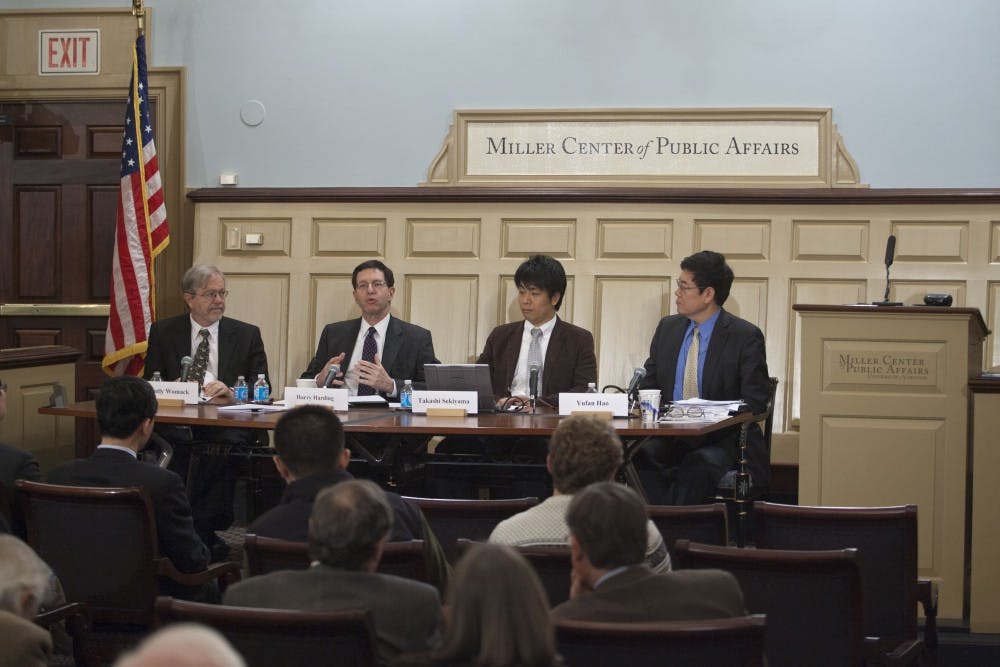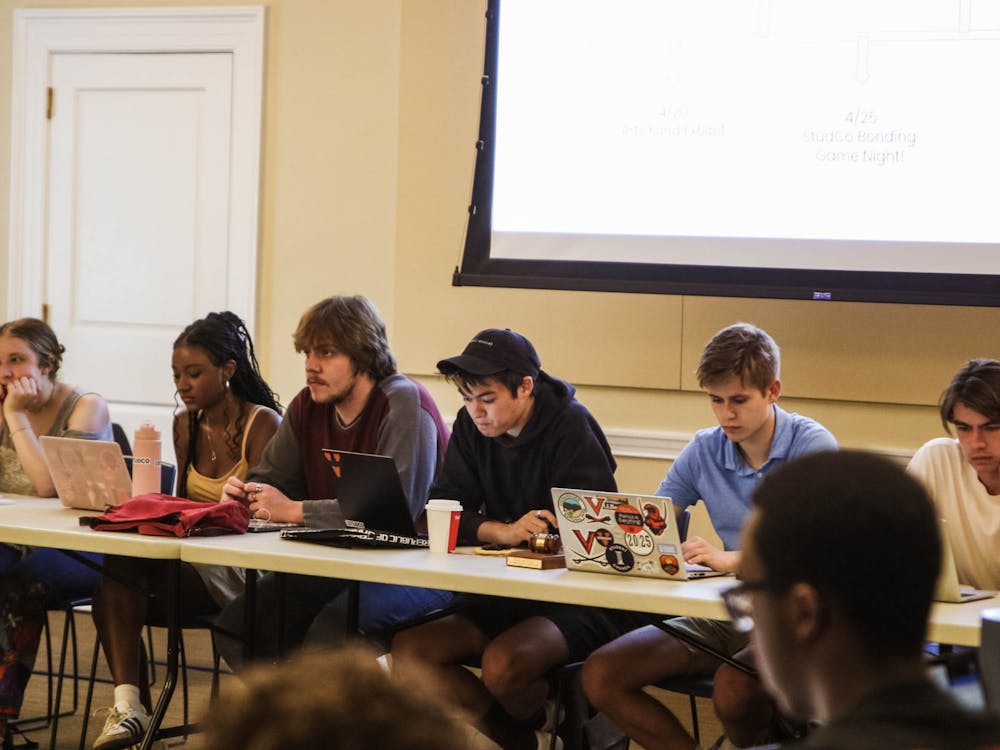The Miller Center for Public Affairs hosted a panel Thursday afternoon on the nature of Chinese, American and Taiwanese relations, and the rising role of Japan in Asia’s regional politics.
The afternoon session, titled “Beyond the Triangle,” looked at how post-Cold War politics require rethinking traditional understandings of east-Asian power dynamics.
“It’s possible Japan will replace Taiwan as the most likely trigger for a crisis between the United States and China, ” said Politics Prof. Harry Harding, Batten School dean and chair of the panel.
Takashi Sekiyama of Japan’s Meiji University spoke about Japan’s rising insecurities as it as its influence in the region grows.
“There are fears the United States may one day abandon [Japan], or Taiwan and China may team up to contain [us],” Sekiyama said.
Even seeming signs of progress — such as increased regional economic integration which is typically seen as a marker of stability — may not be as reassuring as some may like to think, said Politics Prof. Hao Yufan of the University of Macau.
Both Sekiyama and Yufan said Taiwan will play an important role in fostering peace in the region moving forward, and expressed optimism about the potential for a Chinese-Taiwanese peace agreement.
“If both Washington and Beijing start to think of Taiwan not as a problem, but as an opportunity, things may be different,” Yufan said. “I think the inclusive triangle is achievable and with efforts it may happen.”
Although tensions between Taiwan and China may be subsiding, the panelists expressed concern about the future of Sino-Japanese relations.
Sekiyama and Yufan disagreed about a long-standing territorial dispute about the ownership of the Senkaku islands — known as the Diaoyu islands on mainland China. The islands have been a point of contention between the two nations since the United States granted ownership of them to Japan in 1971.
While Sekiyama asserted Japan only hoped to nationalize the islands to prevent ultranationalists from gaining private control, Yufan expressed frustration with the Japanese refusal to accept the islands as disputed territory.
“You can see here this is a case of mutual misunderstanding,” Yufan said.





